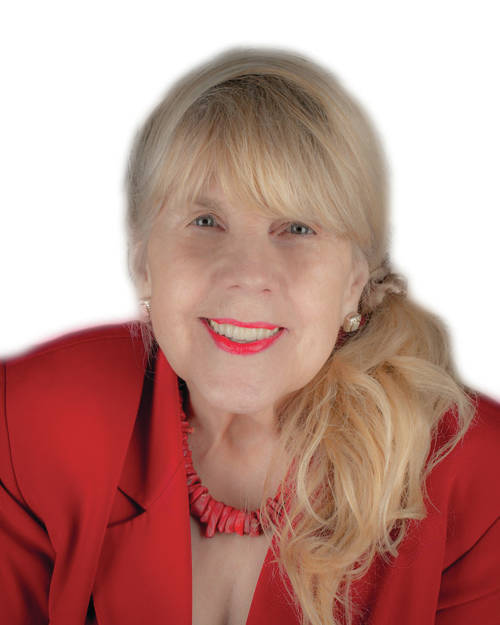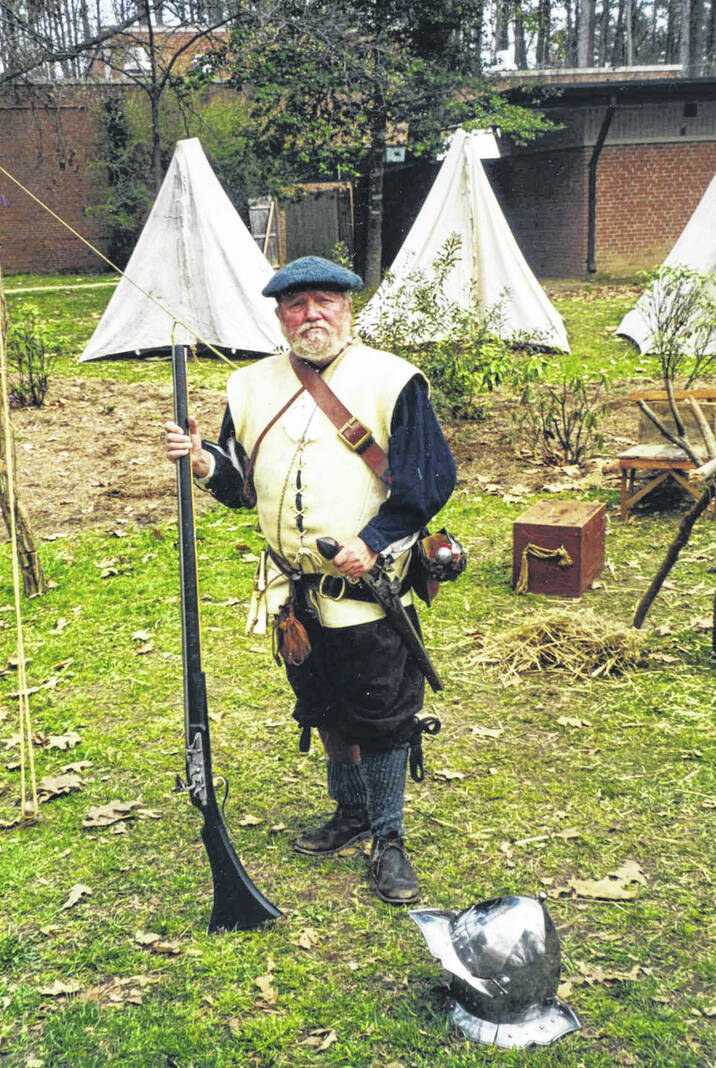

For Terry Purke of Troy, Ohio, the pursuit of history has been a lifelong endeavor.
Provided photo
By Vivian Blevins
Contributing Columnist
“Finding a niche and thriving” could well be a descriptor for the life of Terry Purke of Troy, Ohio. Added to that could be “while educating others.” Have you attended an event and marveled at the quality of what you experienced even as you knew that those responsible were not being paid, that they were volunteers? Did you say to yourself, I could/would never do that. How would I prepare? What if I were criticized?
I want to share Purke’s story with you, give you a peak into how this encyclopedia of American military history came to be: where he has been and where he is. Purke has recently retired as the curator of the Miami Valley Veterans Museum in Troy because of advancing age. He has, however, always known that history would hold a special place in his life and he has always be determined to seize opportunities to educate himself.
It began at age 8 when Purke started collecting militaria with the approval of his father, World War II Army veteran Robert Elwood Purke, who when he returned from war changed his surname from Purkeypile to Purke. More American, I suppose.
As an only child Purke says, “My parents encouraged my odd interests in areas such as local history, archeology, and classic literature. I was a Shakespeare freak!” A Stivers High School teacher, Mrs. Holson, advised him in his sophomore, junior, and senior years to take state scholarship tests and worked with him in terms of methods of study as well as recommending texts written by classical historians. Purke says that at Stivers, “If you scored well on those tests, they’d cut you a lot of slack in other subjects.” And he scored well.
For his 15th birthday, his parents gave him permission, a bus ticket, and money to travel to Gettysburg where he walked the fields for five days, going through the tactical maneuvers of that battle as well as traveling to Fort McHenry. And at age 16, he travelled with his parents to Alabama to visit one of his dad’s old army buddies. Purke talked his parents into driving to Mississippi so he could tour Vicksburg for two days..
Following his graduation from high school in 1953, Purke was off to Antioch College where he spent his sophomore year at the University of Edinburgh studying 18th century British history, theory of economic history of the British Isles, and German for science students. That year he travelled to Belgium, West Germany, England, and throughout Scotland.
Although he felt Antioch was “more indoctrination than teaching.” Purke expanded his fields of knowledge through the cooperative education program there which allowed him to travel with reporters from The Dayton Daily News and The Toledo Blade and participate in productions of Shakespeare’s plays.
Uncle Sam, however, came calling, so Purke married, common at the time, and he was off to Ft. Benning, Ga., for basic training and then to Schweinfurt, Germany, for his two years of military service. While many of the men in his unit spent their leisure time in bars, Purke spent his in surveying the aftermath of war on Germany.
While in the U.S. Army, Purke served as an artillery fire director and exited as an E-5. He then took his child Brian, who was ill with acute leukemia, to Bethesda, Md., to the National Institute of Health for treatment. Brian lived until he was three and a half years old, and the family went through ups and downs as Purke worked as an assistant manager of Central Delivery service in Silver Springs until his retirement in 1990.
While working in the D. C, area, Purke discovered that the region was rife with “living history groups,” and he became seriously involved as a reenactor with special interests in the history of the Scottish Highlands, the French and Indian War, frontier riflemen, the first Virginia Regiments, and John Brown’s militia group in Kansas.
Purke came to Troy in 1992 where his parents had moved after their retirement. Now ill, they needed his help, so he began to look for opportunities in the Miami Valley of Ohio to use his accumulated expertise. He found that at the New Boston Fair at George Rogers State Park, and as assistant archivist at the Troy/Miami County Public Library from 2000 to 2003.
While riding his bike one day in Troy to get respite from his role as caregiver for his parents, he discovered the Overfield Tavern Museum, built in 1808, went in, and said, “I have clothing from this time period. Do you need a volunteer?” And he volunteered there from 1993 until 2010 when Steve Larck approached him about joining a group forming a veterans history museum. Purke and his wife Karen were all in. Purke’s intent is always to interpret history, the players, the locations, and he has held the following roles at the Miami Valley Veterans Museum: curator, display designer, volunteer coordinator, general researcher, presenter, tour guide, and off-locale presenter of the “History in a Box” series.
Age has slowed Purke down a bit, but he continues at the museum as his energy level allows. He is also exploring the opportunity for several gigs.
Museum board president Ted Jones indicates, “We thank Terry and his wife Karen for their valuable service. We know that the success of the museum depends upon a core of volunteers who are committed to recognizing and preserving the history of veterans in our area. If any members of our communities want to help us in honoring those who have served or are serving, they should call me and we can match their interests with museum needs, 567-204-1019.”
Vivian B. Blevins, past CEO of colleges in Kentucky, Texas, California, and Missouri, holds a Ph.D. from The Ohio State University. She currently writes a weekly column for Aim Media Midwest, teaches at Edison State Community College, and volunteers with veterans. Her email is [email protected]. Viewpoints expressed in the article are the work of the author. The Daily Advocate does not endorse these viewpoints nor the independent activities of the author.




